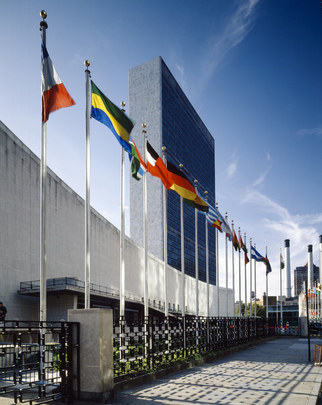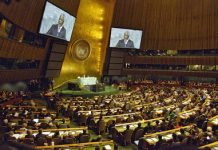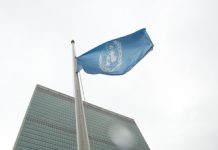“With no viable peace in sight, the Sudanese are trapped in a humanitarian crisis of industrial proportions,” said Jens Laerke, spokesperson for the UN aid coordination office, OCHA.
“Two out of three people need aid, that’s 30 million people…This, of course, demands a massive ramp-up of international support; what we see instead is donors pulling back funding across the world.”
The war between rival militaries – the Sudanese Armed Forces (SAF) and the paramilitary Rapid Support Forces (RSF) – began on 15 April 2023 after a breakdown in transition to civilian rule, following the overthrow of long-time President Omar al-Bashir. Heavy fighting has levelled towns and cities and claimed tens of thousands of lives.
At least 12.4 million people have been uprooted from their homes, including more than 3.3 million refugees.
Rape as a weapon of war
Since the outset, relief workers and others including the UN human rights office, OHCHR, have repeatedly warned that sexual violence remains pervasive across Sudan.
“One survivor recounted that she was told, ‘We are your men now,’ before RSF fighters raped her in front of her children,” said Li Fung, OHCHR Representative in Sudan, speaking to journalists in Geneva via video link from Nairobi.
Meanwhile, the UN World Food Programme (WFP) reiterated deep concerns about the 25 million Sudanese facing famine. “Two years of war has turned Sudan into the world’s largest hunger catastrophe and famine is spreading,” said Leni Kinzli, WFP Communications Officer for Sudan, also speaking from the Kenyan capital.
Invaluable support
In an appeal for funding to support the UN agency’s work, she testified to the value of food assistance for internally displaced people (IDPs): “It means that a father who has been torn from his home in Khartoum can feed his family of four; it means that a mother in an IDP camp in Kassala can cook a simple meal for her young daughters and so that they don’t fall into malnutrition.”
Amid reports that the paramilitary RSF paramilitary had taken the key Darfur town of Um Kadadah from the SAF, the UN World Health Organization (WHO) warned that attacks on healthcare personnel and facilities “are on the rise”.
The past two years have seen 156 confirmed attacks on health “causing more than 300 deaths and over 270 injuries among either patients or healthcare workers”, said
Dr Shible Sahbani, WHO Representative in Sudan, speaking via video link from Cairo.
Funding cuts dilemma
Echoing those concerns, UN Women reported that 80 per cent of hospitals in conflict areas are no longer functioning, with maternal deaths rising “alarmingly”.
A full eight in 10 displaced women and girls in Sudan now lack access to clean water, said Sofia Calltorp, UN Women Director in Geneva, highlighting the impact of deep cuts to funding for humanitarian work globally.
“The latest global cuts in humanitarian funding have put critical programmes at risk, with teams forced to make unreasonable choices and refugees being left to resort to harmful strategies to meet their basic needs,” said UN refugee agency (UNHCR) spokesperson Olga Sarrado.
“Inside Sudan, reduced funding will cut access to clean water for at least half a million displaced people, significantly increasing risks of cholera and other waterborne diseases,” she added.
Source of original article: United Nations (news.un.org). Photo credit: UN. The content of this article does not necessarily reflect the views or opinion of Global Diaspora News (www.globaldiasporanews.net).
To submit your press release: (https://www.globaldiasporanews.com/pr).
To advertise on Global Diaspora News: (www.globaldiasporanews.com/ads).
Sign up to Global Diaspora News newsletter (https://www.globaldiasporanews.com/newsletter/) to start receiving updates and opportunities directly in your email inbox for free.





























